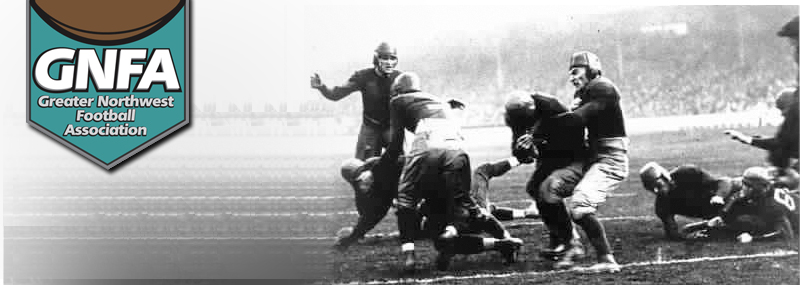Steve Kelley / Times staff columnist
QB's love of the game almost costs him his life
Nobody was open downfield, so quarterback David Castillo, bootlegging to his left, pulled the football down and turned up field.
Pinned against the sideline, he tried to cut right, but was spun around by one Pierce County linebacker and smacked, helmet-to-helmet by another.
"A clean hit," said Castillo's coach, Michael Stuart. "Facemask to facemask, chest to chest. Just smash-mouth football."
It was a clean hit that almost killed Castillo last Saturday night in the Eastside Chiefs' semipro loss to the Pierce County Bengals. A clean hit that landed him in the hospital, in surgery to relieve pressure from the hemorrhaging in his brain.
Castillo, 33, was helped to his feet and, rubbery-legged, staggered through the black night in the general direction of the sideline. He thought he had a slight concussion, nothing more. Headaches are part of the game.
At halftime, he talked with his replacement, Josh Creel.
"He seemed fine," Creel said. "Like he had just had his bell rung. We had the usual conversations about what we were running."
But late in the game, Castillo told Creel he was beginning to feel "weird." Castillo signaled his wife, Callie, to come out of the stands.
"My heart kicked into overdrive," Callie said.
Castillo passed out and was taken to St. Joseph's Hospital. He was put on a ventilator and eventually taken into surgery. Suddenly his life, with all of its promises and goals and worries and expectations, was in a surgeon's hands. His hobby was challenging his life.
"The last thing I remembered was motioning to Callie from the sidelines," said Castillo, who was discharged from the hospital late yesterday afternoon. "After that I pretty much went downhill."
There isn't a less ambiguous form of football than the Northwest Football League, a 13-team semiprofessional league made up of men between 18 and their mid-30s, who aren't ready to surrender their love for the sport.
"It's in-your-face football," Stuart said. "It's like an underground movement of the game. It's a lot of fun and a lot of emotion."
Some of these players continue to chase dreams of playing in college, or playing professionally in the Arena Football League, or in one of the European leagues or the Canadian Football League.
But most play because the game still has an almost mystical hold on them. They are truck drivers, lawyers and doctors. The league is a melting pot of ideas and experiences.
It's called semipro, but the Chiefs' players spend approximately $500 for the opportunity to spent their summer Saturday nights playing football.
"It's different than any other sport," said Creel, 32, who played quarterback at Gardner-Webb College in North Carolina. "It's probably the closest, most civilized way to do battle with another human being."
Even after nearly dying on the field, Castillo, who played high-school football in Centralia and blew out his knee practicing at Oregon State, said his ardor for the game hasn't dulled.
"The risks are there, but I think in the end, it's worth it if you love the game," he said. "And I do. I hadn't played for eight years, but even though this circumstance arose, I'm real happy I came back to football. I love the game. I've always loved it. It really comes down to the chess match that takes place on the field and the camaraderie you build with your teammates.
"This was my first year with the Chiefs, and the response from my teammates after I got hurt was amazing. That's what I really missed being away from the game. You should have seen this place the day after I got hurt. I had teammates crawling out of the woodwork. That was pretty neat."
Creel visited Castillo at the hospital on Sunday, saw him unconscious, hooked to tubes that were keeping him alive and, almost immediately, made a decision.
"It was extremely sobering," Creel said. "And I decided that, as much as I love this game, I can't imagine putting my family through that. I'm married. Have two kids. After 14 years, it's time to become a coach. I'm just not willing to put myself out there anymore. I just told my coach, `I can't do this anymore. It's not worth it.' "
The knee-jerk reaction, in light of Minnesota offensive tackle Korey Stringer's death, is to say the game is too violent, that it is amazing more players aren't seriously injured and more lives aren't uprooted by the game.
The players in this league sandwich the season between the rest of their lives. Training, for some teams, is sporadic. Sometimes as few as 18 Eastside players make it to practice. Many of the players aren't in peak condition.
But every player in this league understands the risks and weighs the consequences before he continues to play.
"You do understand that every time you put on the pads there's a chance you're going to get hurt," Castillo said.
Still, he knows how fortunate he is. He had a stare-down with death on Saturday night and is expected to make a full recovery.
But some other player, in some other league, in some other state, won't be as fortunate as David Castillo. It is the risk a football player takes. It is the risk he knows. It is the risk players are willing to accept.
Steve Kelley can be reached at 206-464-2176 or skelley@seattletimes.com

